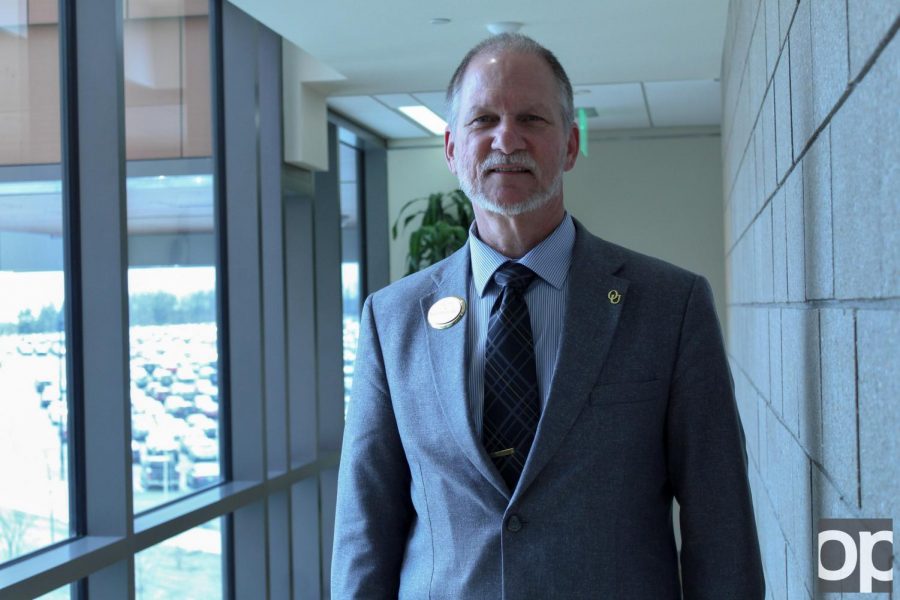Healthology Symposium to study effects of upstream health
Dean of Health Sciences Kevin Ball
This year’s Healthology Symposium topic is on public and environment wellness. It involves discussion on various topics such as wellness and health promotion, public health, environment health and safety and safety science management. It also specifically pursues society’s big health challenges.
The symposium is a two day event Tuesday, April 17 to Wednesday, April 18. Tuesday’s event is a public forum being led by TED Talk speaker Doctor Rishi Manchanda, founder and president of Health Begins. The Tuesday event is open and free to the public, and it will be located inside the Oakland Center Banquet Rooms at 6:30 p.m.
Wednesday continues with panel discussions from different students and researchers. It will also include breakout sessions for developing professional action. The closing remarks will be from Doctor Paul Grundy. Wednesday’s event will be inside the Human Health Building in room 1050 from 7:30 a.m. until 5:30 p.m and requires an RSVP.
“This year’s event centers around that concept of better upstream health,” Dean of Health Sciences Kevin Ball said. “This will really affect our health status and perspective of an urban population.”
According to Ball, the discussions will be about how important addressing “upstream” social determinants of health are, and how it will eventually conclude with achieving better “downstream” care. Ideally, this symposium is designed to call for public awareness and professional action.
Social determinants of health depend on what area a certain individual derives from and what resources are available to them. Is there clean water, air, food and soil? These are different determinants that affect social society especially for health care. Upstream health involves global forces and governments. By funding the upstream health, more affordable options may become available and eliminate health care discrepancies which in turn helps individual patients down the road.
“The purpose is to honor the research and scholarship produced by the School of Health Sciences faculty and students and to provide a platform by which they can share their work with our community partners,” said Kristin Landis-Piwowar, interim associate dean of the School of Health Sciences.
The conversation will also discuss how when it comes to health care service inside the U.S., people and consumers always pay per service. There is not a good system of “upstream” funding according to Ball.
“Your zip code is one of the best predictors for the future likelihood of life so good conditions equal a long and healthy life,” Ball said. “If we as a society could do better, it would improve people’s quality of life and save money that could go to a healthcare provider for preventable diseases such as type two diabetes, essentially, whatever we can do upstream is going to help.”
The Board of Advocacy and Research Development (BOARD) is who contacted the acclaimed TED Talk speaker and helped arrange the event. The BOARD also assisted in sponsoring the event as well as finding various sponsors.
This year’s event is meant to be larger and reach a greater number of community members. The idea is to bring community members on campus to see what students and the department have completed and accomplished.
“This symposium is being delivered at a larger scale than last year,” Landis-Piwowar said. “It is designed to not only educate health care providers and payers but also to provide tools and practical application of addressing social determinants of health.”








